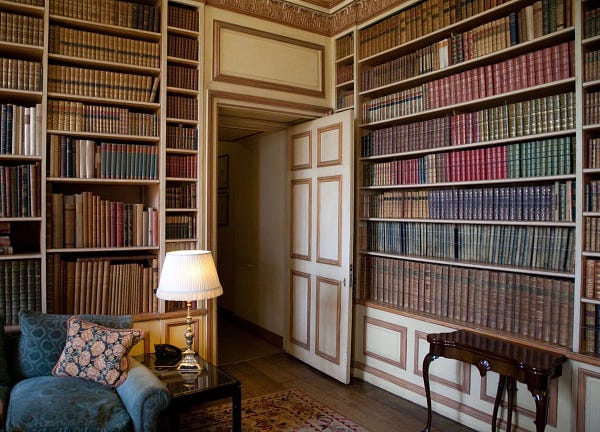Hello friend, earlier today I posted a thread on some positive results after a year of running a men’s group where we meet once per month and discuss some influential literature:


In this thread, I mentioned that I initially assembled the group by writing a letter and had several requests asking for the contents of the letter. I had to remove some personal information, and in doing so, revisited my words over a year later. In retrospect I was pretty milquetoast compared to the level of discussion we have been having recently. Maybe I could have gotten away with letting my power level leak out a bit…anyway, here are the contents of the letter. Feel free to steal. Just be sure to send it on the nicest paper you can find, with matching envelopes…
Dear xxxx:
I am writing to you to invite you to a “Great Books” reading group. We will be reading, in chronological order, some of the most influential stories and documents in human history at a pace of one book per month (about 15 minutes per day) These will cover epics and literature, poetry, theater, and philosophy. We will then discuss these works together over libations once per month (approximately two hours) in a text-centric conversation, where there are no wrong opinions (you can say anything but you must be able to defend it) or experience necessary. This can be challenging, and it is perfectly acceptable to just be silent and listen – for sometimes that is exactly what we need to do. It is in face-to-face discussion that we truly understand what we have read, change or challenge our worldviews – these are the “liberal arts” – rhetoric, grammar, and logic – skills essential to maintaining a free society. This invitation comes to you because I think you will gain something from this journey. After all, Socrates says, “The unexamined life is not worth living, for a man.”
We live in a time where we are bombarded by words and information – most of which will probably age like milk, in the best case. In the worst case, they may be deliberately designed to outrage us in order to drive engagement for advertising revenue, or, Heaven forbid, selectively delivered to us via algorithm (or some other mediator). If this is true, we need to control what we consume. In addition, polarization of society has led us completely unable to agree on fundamental topics – is this because we no longer know what the fundamentals are? Our house, our nation, is broken. We are unable to repair our broken house with broken tools. These tools that we were given, our education, were purely intellectual adventures, or worse – read some books, memorize lecture notes for an exam, then pass it for a piece of paper at the end. But did we understand them? Did any of this make us better men? What is a better man? Is it someone who acts justly? What is justice? -- These are the types of questions we will try to answer while we undertake this endeavor.
What is a “Great Book?” This sounds subjective, and it is. To put it simply, it is a piece of literature that someone decided they were special enough to go through an extraordinary effort to save them against the ravages of time. For example, William Shakespeare never published his works, one of his friends did. The poet Virgil hated his epic Aeneid, and wanted to throw it in the trash. His friends convinced him to save it on his deathbed. Without the Aeneid, Dante, nearly 1500 years later, may not have written his Divine Comedy. We will eventually see – these authors speak to each other through time, and by reading original texts, we are able to eavesdrop on this conversation to follow the progress of human civilization. The same holds for the political and economic authors debating throughout history, and we will get to take a front row seat and use these texts as an anvil to beat our minds into a sharpened tool. These works are transcendent because they still have something to offer us today, though at times possibly grossly misinterpreted throughout history. There is not enough time to read everything. So we might as well read the best. If not this, then what?
Now, for some logistics: The first meeting will be <date/time> at <location> to go over reading plan strategy, pacing, how translations were selected and how books will be sourced, future meeting schedule, while getting to know everyone involved. If you are open for this journey of sharpening our minds, please RSVP by <date> over some communication method (text, social media, etc. – I will provide a copy of the first book at this time).
I will leave you with a quote from Mortimer Adler, a famous American educator and philosopher, “It is not how many books you get through, but how many books get through to you.”
And I look forward to taking this journey with you.
<signed>
Postscript – rough outline of reading plan:
General reading plan – more details to follow when we meet
Part One: The Classical Ages (Epics, Tragedies, Early Philosophy and History)
Examples: Iliad, Odyssey, Oedipus Plays, The Oresteia, The Last Days of Socrates, Aurelius’ Meditations, etc.
Etc. etc.


